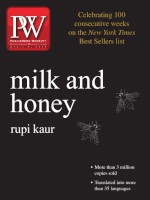The coeditors of University of Notre Dame’s Action Books, Johannes Göransson and Joyelle McSweeney, see the press’s mission of publishing literature in translation as a challenge, and even a provocation, to traditional poetry publishing. PW spoke with McSweeney, who also directs the creative writing program at University of Notre Dame, about her vision for the press.
Where do you see Action Books in relation to the rest of literary publishing?
For us, works in translation are not a separate arena from U.S. poetry—a place to dip into once in a while to pick up a few bits of inspiration. We see poetry through an international view that opens up U.S. poetry to all the alternative energies that [its gatekeepers are] constantly seeking to hide, marginalize, control, or moderate.
How so?
For generations, we’ve been taught that the poem is a document of individual craft or mastery, yet this T.S. Eliot model of understanding writerly craft is Anglo-centric and aesthetically narrow. There are many different models of poetry, and infinite ways of imagining the poet in relation to society, which we see in other cultures as well as in immigrant cultures within America.
For example, we’ve been part of an effort to bring translations of Raúl Zurita to a wider audience. He’s part of a revolutionary group called Cada that participated in art action against the Chilean government. This artist collective bulldozed words in the desert landscape to be seen by fighter pilots as they flew overhead. This idea of poetry as action, poetry as collectively authored, and poetry as ragist, is very different from the talent rat race that we’re often taught about in school.
Talk about some of the books on your current list, and how they execute your mission.
Our new releases span many cultures, traditions, and poetries. Adrenaline by Ghayath Almadhoun, for instance, is the work of a refugee poet. He was born in a Palestinian camp and currently lives in Sweden. The collection is infused with the author’s own experience, as well as [postwar poet] Paul Celan’s work, and a variety of surrealist influences. In his writing we see a literary indexing, as the individual voice is infused with both auto- biography and artistic tradition. It’s not collective voice per se, but the individual voice operating within the nightmare of exile and statelessness.
In the fall, we’re publishing another book by Kim Hyesoon [2016’s Poor Love Machine], who is part of group of Korean women carving a space for creativity and inventiveness in the face of tremendous conformist pressure. Their work isn’t just about creating a feminist academic and artistic community. For these women, feminism begins with how children are raised, with social justice as the reversal of cultural stereotypes. And so aesthetics is no longer divorced from activism.



 Volume 265
Issue 14
04/02/2018
Volume 265
Issue 14
04/02/2018





